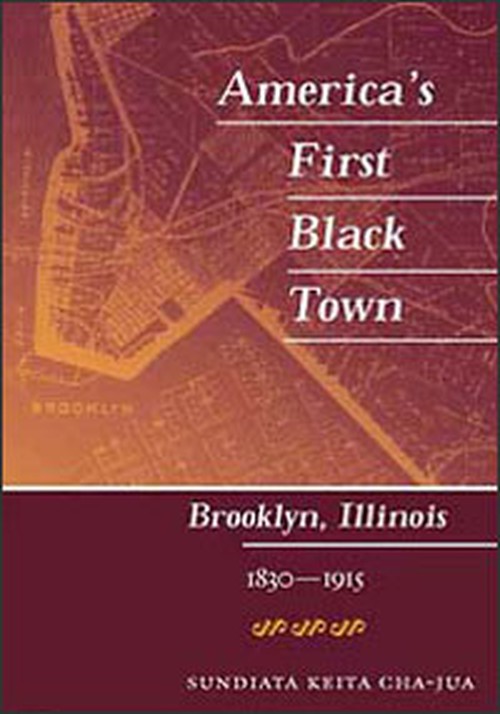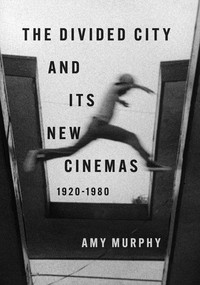
America's First Black Town
About the Book
"Founded by Chance, Sustained by Courage," Brooklyn, Illinois, drew Black Americans from the day that free and fugitive Black people founded it in the 1820s. Initially attractive to escaped slaves and others seeking to live in a Black-majority town, Brooklyn later drew migrants eager to commute to jobs in East St. Louis and other industrial centers. Ultimately, however, this proximity to the city created a destructive economic dependency that poisoned the ground for Brooklyn's self-determination.Sundiata Keita Cha-Jua traces Brooklyn's transformation from a freedom village into a residential commuter satellite that supplied cheap labor to the city and the region. He examines why Brooklyn remained unindustrialized while factories and industrial complexes were built in nearly all the neighboring white-majority towns. As Brooklyn's population tilted more heavily toward single young men employed in the factories and as the city's cheaper retail businesses drew the town's consumer dollars, local businesses—except those catering to nightlife and vice—withered away. Cha-Jua details the town's social and political history while his analysis places Brooklyn in the context of Black-town development and African American nationalism. Throughout, Cha-Jua documents the dedicated efforts of Black citizens to achieve build a thriving, autonomous, Black-majority community.
Challenging and insightful, America's First Black Town outlines the dynamics that presaged the post-1960s plight of Gary, Detroit, and other Black-dominated cities and confirms that, despite Brooklyn's struggle for autonomy, Black control could not stem the corrosive tide of internal colonialism.
About the Author
Sundiata Keita Cha-Jua is an associate professor of history at the University of Illinois at Urbana-Champaign.Reviews
"Brooklyn, Illinois, has a vital and interesting history dating back to 1830 and its birth as a refuge for runaway slaves and free African Americans. That history, with its achievements and failures, is outlined in exhaustive detail enlivened with social analysis."—Robert D. Sampson, History
"The cumulative effect of Cha-Jua's efforts to broaden and deepen Brooklyn's story is quite impressive. This book offers a thoughtful, engaging account that adds to our growing understanding of the diversity of African-American life beyond the mainstream."
—Stephen A. Vincent, American Historical Review
"Deftly researched and strongly argued, it engages a variety of important issues centering on the experience of African Americans during the turbulent decades between emancipation and World War I. Cha-Jua's demographic research and textured analysis of Brooklyn's changing social realities are excellent. A model study of community development and decline, with valuable insights into the interplay of race, class and region, and the powerful forces that conspired against African American aspirations."
—Dennis B. Downey, Journal of Illinois History
"Drawing liberally on census records, period newspapers, and other sources, this volume is well researched, cogently argued, and brings an important story to life. The experiences of black Brooklyn are placed within the broader history of Illinois, and the author compares his subject with other black towns. An insightful study that sheds light on a heretofore obscured history."
—Claude A. Clegg, Indiana Magazine of History
"Painstakingly researched, this book turns details into deep analysis, offering substantive payoffs in its grasp of the dynamics of community building, political transformations, and economic growth and decline."
—Leslie Brown, Journal of the Illinois State Historical Society
"Cha-Jua is a careful and curious researcher who has made creative use of a wide range of sources. The book is carefully structured and explicitly argued."
—Douglas Knox, Bulletin of the Illinois Geographical Society
"A valuable and often inspiring saga of determined African Americans striving and sometimes succeeding in their efforts to build a viable, independent community in the face of blatant, virulent racism and, later, more subtle forms of discrimination."
—Booklist
Blurbs
"Effectively integrating social, economic, and political developments in a single community over an eighty-year time period, Sundiata Keita Cha-Jua's thoroughly researched study provides an important new model for understanding the history of all-Black towns during the industrial era."-- Kenneth L. Kusmer, editor of Black Communities and Urban Development in America, 1720-1990
"Cha-Jua brilliantly situates the importance of Brooklyn's history within the wider world of mass migrations, labor markets, terror, and political economy. This theoretically acute and meticulously researched study will make a great impact not only in history and Black studies but also in political science and sociology as well." -- David R. Roediger, author of The Wages of Whiteness: Race and the Making of the American Working Class



















